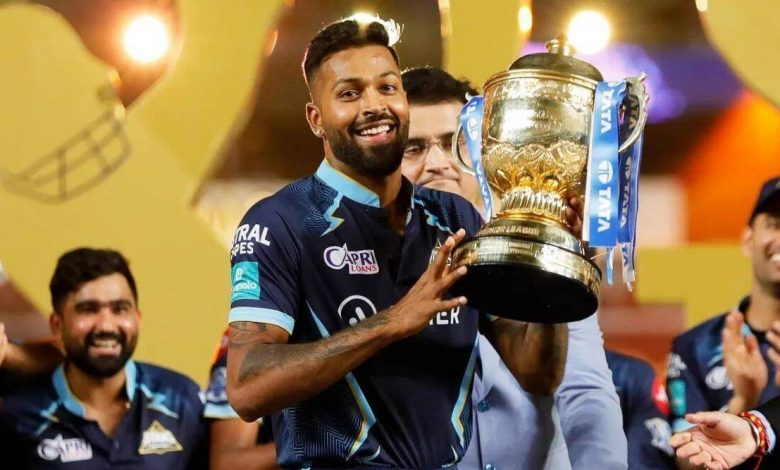India’s global T20 takeover shows that being first is overrated
India’s global T20 takeover shows that being first is overrated: This week, two global business tycoons were among the hundreds at Lord’s to see The Hundred, the newest form of English cricket. If cricket were an investment, its value would have skyrocketed.
A few years ago, a picture of Google CEO Sundar Pichai and Reliance Group Chairman Mukesh Ambani enjoying a cricket game would have been framed as a celebrity-watch frame. Two cricket enthusiasts who have found time to be fans again now that they are wealthy.
A new level of mystery had been added. While Pichai’s passion in cricket may be more casual than Ambani’s, it is clear that both men like the sport. The IPL media rights apparently attracted Google’s attention. It was also in the best position to identify emerging tendencies.
What exactly brought the two of them to The Hundred to invest? Maybe they were scouting potential acquisitions for future game control.
Whenever a new cricketing strategy is developed in England, India has a history of stealing it and making it more successful than ever before.
India is about to take the next giant leap from successfully selling a borrowed concept, Twenty20 cricket, to controlling the sport’s entire ecosystem. The unparalleled power of BCCI in the ICC is nothing new. All the talk recently has been about the more exciting world of franchise cricket, which is owned almost exclusively by the IPL.
Ravi Shastri is a true cricket historian for getting down from the commentary box to pose with Pichai and Ambani during the Hundred game and posting the photo online. Screaming gusts of change were captured in the frame of the smiling trio at the Home of Cricket.
India did not start the game of cricket, but unlike in the bird world, where the early bird does not necessarily catch the worm, in our world the later bird does. Being the first to advertise a product or service might backfire in the competitive and ever-changing landscape of consumer preferences.
India has had little influence on cricket’s development from the classic Test to the five-dayer, one-dayer, Twenty20, and now The Hundred. What it does have is the ability to recognise when an idea is ready for its time.
Although England pioneered Twenty20 cricket in 2003, it was quickly mocked by India. One of the most well-known quotes from BCCI veteran Niranjan Shah in 2006 was, “What is Twenty20? The Indian board is often embarrassed by the question, “Why not Ten10 or One1?” This is a jab at BCCI, intended to remind them of their own resistance to adopting a format that would become as familiar to them as their own.
What if MS Dhoni’s team of gutsy cricketers, who played entertaining cricket, had won the 2007 ICC World T20 before the IPL premiered on television? Perhaps not.
In contrast to the risk-takers and early adopters that the English represented, the Indians were the merchants and the ultimate beneficiaries of the new world.
Success is not always rewarded.
On Steven Bartlett’s podcast, The Diary of a CEO, thinker and author Malcolm Gladwell makes a convincing case for the unpopular view that “being first was so overrated.” Gladwell, a best-selling author and most-heard podcaster, engages the late Steve Jobs, the legendary American entrepreneur and Apple inventor, to make a compelling argument for his prediction, which appears to have come true for the expansion of Twenty20 cricket.
He begins by stating that Steve Jobs was not a pioneer in anything, which is relevant to the topic of when to launch a product or whether or not to risk one’s personal wealth on a business.
He always comes in last, yet in the end, he always ends out on top. To him, being first was utterly unimportant. He only now got a smartphone, therefore he’s 10 years behind the times. “Everything that goes into the first Macintosh computer (Apple’s mass-market desktops) is derived directly from Xerox Parc (Apple engineers, it is reported, had visited this computer firm and got inspiration).
The Indian companies are, to paraphrase Gladwell, meticulously behind the eight ball when it comes to their T20 cricket expeditions. In cricket, the questionable (read: Allen Stanford) and the dreaming have tried to clone IPL and paste it all over the place, but they have failed. India waited calmly, honing its weapons for a later strategic attack.
While the proprietors of the Kolkata Knight Riders have shown the most daring growth intentions among the Indian IPL franchises, others have ambitions in this area as well. Currently, IPL owners are involved with every team in the United Arab Emirates and South African leagues. Meanwhile, KKR has established a foothold in the Caribbean, with expansion into the United States next on the agenda.
Gain anticipated
It’s hardly a surprise that BCCI just signed a record-breaking IPL broadcasting rights contract days before a massive influx of offshore investment from IPL owners. Each IPL franchise anticipates a windfall from the Indian board’s $6 billion in profits over a period of five years. They anticipate a near-doubling of their income, to over Rs 400 crore per year. Many people used this extra cash to buy franchises in the various Twenty-Twenty leagues that have sprouted up across the world.
All of the other stars in the cricket constellation were also aligned favourably for this bold move. Teenagers and retirees alike favoured T20 franchise tournaments.
Both Quinton de Kock and Trent Bolt wished to step down voluntarily from international competition. Since South Africa was planning to launch its own T20 league with the owners of the Indian Premier League (IPL), the series with Australia would be postponed.
In the meantime, despite all this upheaval, what about Tests, the game’s original format? India holds out hope that Britain will think of something truly novel.
Read More: Experiments and role clarity bring new answers to India’s T20 questions

